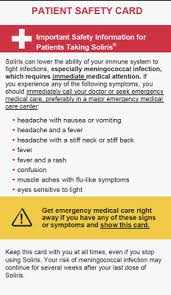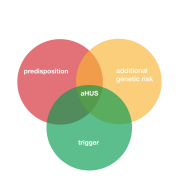A new blood test for aHUS could be a game changer for those who have been diagnosed with aHUS only to be told that no genetic explanation for them having aHUS can be found.
They still need a complement inhibitor which works but they usually have a better forecast of what will happen to them.
No one can say why, just bemoaning that their genetic tests have not produced a result.
Yesterday a paradigm shift in aHUS understanding was announced.
A new blood test.
One which does not look at the alternative pathway but focuses its attention on the classic pathway. The part of complement which begins the encounter with things that the other immune systems are brought in to clear.
The blood test is based on one that has been around a while. Something called the Ham Test.
Named after Thomas Ham it is test which has been used in the diagnosis of PNH for nearly 90 years. As it’s a red blood cell test it has not been that useful for aHUS, although a negative test result says something.
Anyway a research group at John Hopkins University in the USA have modified the test by , oddly, removing some of the complement system’s natural inhibitors to create something called “biosensors” which can detect the primary stimulating activity by the classic pathway along with the IgM, the initial antibody created by B cells to destroy an antigen.
This blood test could explain why complement remains active even when blocked by a terminal complement inhibitor.
it could explain uncontrolled activity in disease onset where there is no evidence of genetic defects.
And it could be the stimulus for no variant found mediated aHUS.
It could be a test for complement inhibitor treatment effectiveness.
Also it may help explain why having no variant is a good predictor of remission if a complement inhibitor is discontinued.
A game changer.
It now needs to be seen fulfilling its potential for aHUS in clinical practice.
More background science staff can be found at this link
Article No 665


